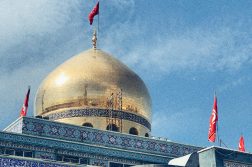India’s Prime Minister, Narendra Modi, has asked for his country’s forgiveness after imposing a sweeping lockdown that has badly affected millions of India’s poorest.
The enactment of this national lockdown is said to have left many of India’s 1.3 billion citizens jobless and hungry, while also forcing tens of thousands of migrant labourers to walk hundreds of kilometres from major cities such as New Delhi to their native villages in order to provide support for themselves and their families, after the national ban was imposed on all motorised transport. These new stringent ‘Total lockdown’ laws introduced have also banned Indians from leaving their homes for three weeks, closed all non-essential businesses and halted almost all public gatherings. Criticism has however mounted against Modi and his Government, over their apparent lack of planning ahead for this national coronavirus shutdown which was introduced with less than four hours’ notice after India had reported a total of 1,000 cases of coronavirus and 25 deaths to date. In his weekly radio address Modi apologised for the impact of these strict ‘stay-at-home measures’, but defended his actions by stating “there was no other way” to stop the rapid spread of the virus across the country.
Modi has furthermore announced a $22 billion bailout for the country’s poor on Tuesday, including free food and cash handouts. However, there are concerns from many that this might not reach those who most in need. Abhijit Banerjee and Esther Duflo, two 2019 Nobel Prize winners in Economics, have both stated that even more aid for the poor is needed to avoid an ‘economic catastrophe’. India’s economy was however already in the midst of a severe slowdown before the country went into lockdown, with India’s national annual economic growth forecasts for 2020 recently being cut from 5.8% to 2.5%. Experts are also concerned that the real number of infections could be far higher than 1,000, considering India has one of the lowest testing rates in the world. These are realistic concerns considering India is one of the world’s most densely populated countries, a reality which could result in a further spread of the virus.
However, what many perceive to be an inadequate handling of a national crisis has not translated into national polling, as demonstrated by Modi’s national approval rating remaining at 74%. This perhaps is evidence that India has already forgiven his incoherent and disorganised response to the global pandemic.



